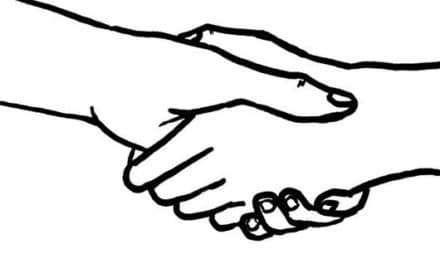Keeping kids safe online is a top priority for most parents. Many of us worry about how to prevent our kids from being victims of online cruelty, but it’s equally important to ensure they understand how not to become perpetrators of it. The bottom line? Kids need to understand the effects their words and actions can have online.
As part of our partnership with Google and YouTube for Safer Internet Month, we’re exploring “It’s Cool to be Kind”, one of their Be Internet Awesome resources aimed at empowering kids with tools and education to confidently and safely explore, grow, and play online.
The Internet is a vast and nuanced communication tool that demands us to think in terms of “both/and” rather than “either/or”. For example, the internet propagates both inspiring and uplifting information, and hateful commentary and opinions. Unfortunately, the Internet itself makes no distinction between kindness or cruelty. That’s where you come in. Families are powerful influencers of their children, and they can help them “take the high road” by exemplifying the concept of “treating others as you’d want to be treated”, supporting their friends, and defusing drama and cyberbullying.
When somebody messes up (and this is surprisingly easy to do online — even unintentionally), family members are more likely than anyone to understand, forgive, and help each other learn from mistakes. So there’s no better place to start putting online respect, kindness, and positivity into effect than within your family. Families can help when someone’s being unkind (sometimes just by listening). They can also encourage each other to be “upstanders”: people who support and advocate for people who are the targets of cruel or malicious behavior. If you haven’t already, have a discussion on what kinds of actions and behavior are important — talk about how your family treats people. Think about what that looks like digitally: texts, posts, comments, photos, and videos.
Minding Your Tone
The tone of a text or post is the spirit of it — the feeling a person gets when receiving it, good or bad. Because parents and kids text, use messenger apps, and DM (direct message) each other all the time and know each other so well, they don’t always think about how a text comes across. With people we know, texting is just another way to have a conversation or connect. But when people don’t know each other so well, a text or emoji can sometimes be interpreted very differently from the way it was intended. So here’s a simple activity to get everybody thinking about that:
- Get two or more of the phones in your family and open up your text messages (or a messaging app everybody uses), and start a conversation between two family members. It could be about a real or made up situation — something you’re going to do this weekend, something that happened at school, someone who asked for a family member’s help, etc.
- Read the conversation out loud in a specific tone of voice — happy, sad, angry, etc.
- Talk about what you noticed while listening to them read. How did you feel when you heard it? What do you think someone outside your family would think or feel? How could those texts been worded differently? You’ll probably come up with other questions, so have at it. 🙂
- Next, have two different family members try having a text conversation with a different tone from the first one: maybe an angry or sad one. Read that out loud and talk about how it came across to everybody while listening to it.
What Kids Can Do About Social Negativity
Here are some talking points (and questions) for a parent-child conversation about the social scene at school. See which ones work for your family.
- Are kids pretty nice to each other at school?
- Have you ever seen someone being mean to somebody a bunch of times, or for a long time?
- Do you know the kids involved?
- Would you tell me if they were being mean to you? (If no, why not?)
- If the meanness was happening to someone else, how did the situation make you feel?
- What did you do about it?
- Is it happening online? I’ve heard you can mute or block them — would that be helpful? If not, would you tell me why? If so, could you show me how you’d do that?
- (If you didn’t do anything,) do you wish you did do something?
- What do you think you’d do if it happens again?
- Do you feel like that would help you if you were being bullied?
- Do you feel you could help someone by being kind or just listening?
- You know, if someone who sees meanness online shares it with other people, that can make things worse, right?
- Would you feel comfortable helping a friend being hurt online?
- How would you do that? Call out the behavior (never the person, right?)? Post something kind about the person being hurt? Text or DM them saying they have your support? Text or DM other students and ask them to support the person online or privately?
Sometimes, being an upstander just means being a friend to someone who’s been bullied — listening to them, sending love, or just being there for them.

This sponsored content is part of Google’s Be Internet Awesome work, and has been republished here with their permission.
*
Want to learn more about internet safety? Check out Screentime Strategies To Support Healthy Media Experience For Kids, How To Give Kids A Healthy Start With Phones, and our takeaways from the Internet Safety Fireside Chat we recently had with Google Canada.






From Our Comments